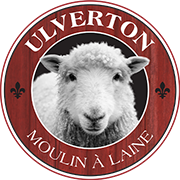Sustainable Development and Eco-Responsible Management
For several years, the Ulverton Wool Mill has incorporated sustainable development policies (selective sorting, improved energy consumption, etc.) into specific areas of internal control.
The goal is to better manage consumption and production through good practices, while also fostering greater social cohesion by integrating dimensions of solidarity and personal fulfillment that lead to improved quality of life and better working conditions.
The areas of focus within internal control include:
-
Energy management: reducing consumption.
-
Waste management: selective sorting.
-
Purchasing: cleaning supplies, hospitality products, workwear, office supplies, furniture, and items related to cafeteria and kitchen activities.
-
Office equipment management: printers, copiers, computers.
-
Management of paper and water consumption.
-
Transportation management: prioritizing videoconferences, walking, and cycling to reduce travel.
This section also describes the behavior expected of individuals who drive company vehicles, supported by specific training and awareness on “eco-driving.”
All cultural activities must be carried out with respect for environmentally responsible management. For example, when hosting an exhibition, the choice of materials used for performing arts must meet sustainable development criteria, including recyclability. The number of devices used is taken into account. The timing of the selection process should be adapted to the specifics of the exhibition to avoid energy overconsumption caused by excessive air conditioning. The same applies to performance or art projects carried out on site and in the surrounding environment.
Finally, the heritage mission is naturally at the heart of this policy.
Better management attention is applied both to the maintenance and repair of buildings and gardens. One of the primary concerns is energy consumption, improving equipment, preserving the building’s integrity in line with the realities of historic structures, and unifying energy consumption activities by grouping and adapting them to daily habits and the environment. This chapter includes a section addressing issues related to the mill’s lighting, where insufficient or uneven lighting disproportionately increases consumption and equipment maintenance costs.
During restoration work, the choice of construction materials is also a key element of environmentally respectful management, favoring low-carbon products made from compatible raw materials produced locally or nationally.
To conclude this initial overview of sustainable development actions, green space management is undoubtedly a prime example of this policy.
The Ulverton Wool Mill has integrated this aspect into its trail management plan for over three years. Two fundamental focuses have shaped this new policy. Of course, both ecological and social aspects of the project have been considered, both closely linked to the shared goal of improving the image of the trails.
The first focus is to restore the harmonious balance of the trails, where environmental respect and biodiversity conservation are priorities. The second concern is to improve and optimize the work of the property manager, while being attentive to the residents and visitors of these places, always fostering a genuine connection between the trails, nature, and the various realities.
Two key policies have been identified: the first concerns the products and tools used on the trails; the other chapters focus on plant management and address more botanical topics.
Products and Equipment Used on the Trails
Gradual Phase-Out of High-Chemical Treatments and Nutritional Products
Biological control campaigns, alongside regular phytosanitary inspections, will help replace pesticide and fungicide products. Additionally, the acquisition of a thermal weeding machine will allow us to discontinue the use of highly harmful herbicides that pollute the soil.
The stock of tools and equipment for the trails is being gradually replaced with quieter, less polluting electric equipment. Each purchase of equipment is made in consultation with the entire trails team and is subject to targeted research aimed at improving eco-responsible management and the working conditions of staff.
Chemical spraying has been reduced, and mosquito control measures have evolved. Several techniques have been implemented that allow us to maintain policies compatible with biocontrol interventions.
The establishment of a composting area will, on one hand, enable the long-term production of fertilizer for the park’s plantings while also recycling some of the plant-based waste generated by meals offered on site. To facilitate composting, we kindly ask our visitors to properly separate their waste at the end of their meals.
